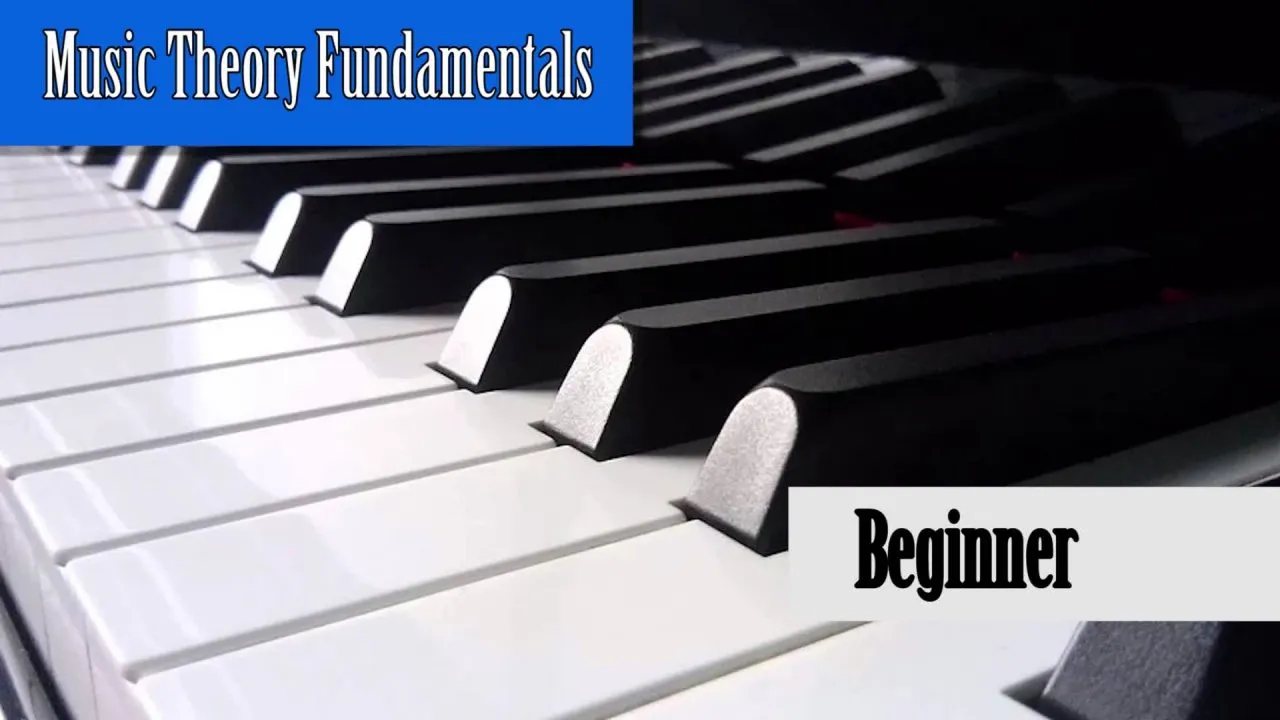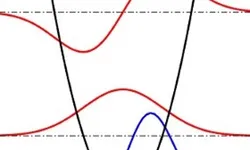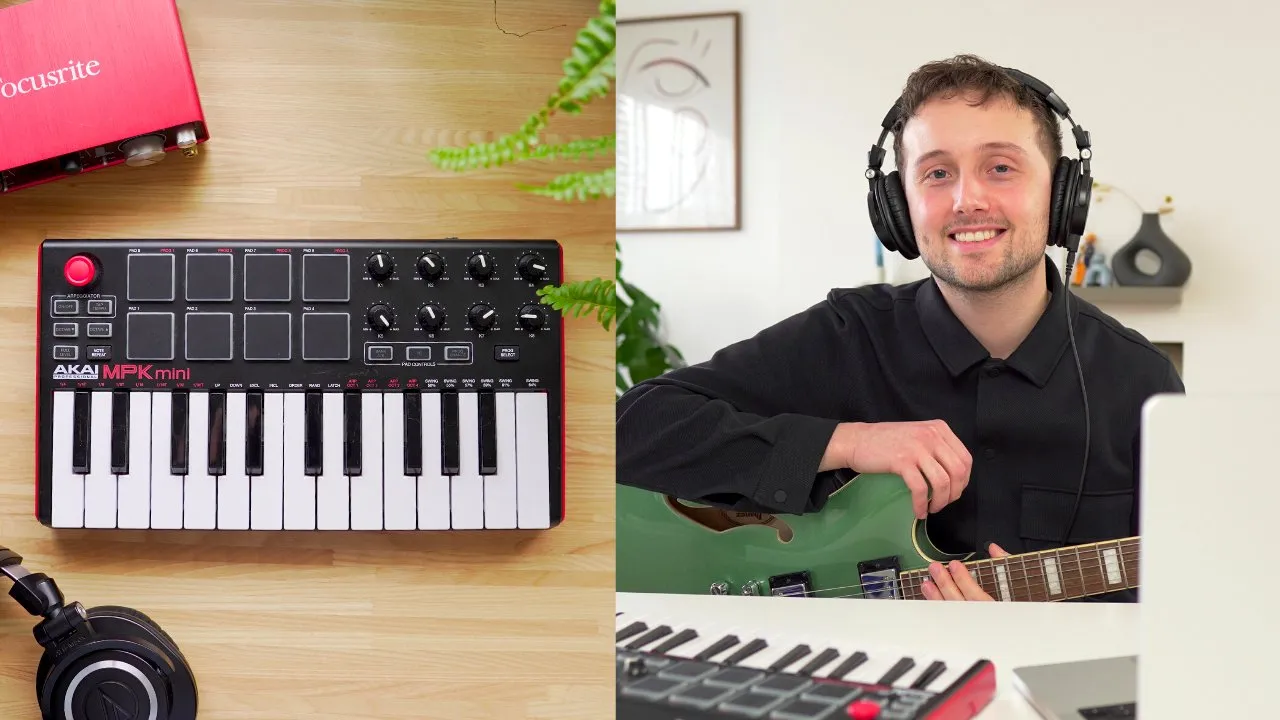
Music Theory Fundamentals - Beginner 
This class provides a comprehensive introduction to the fundamentals of music theory, equipping students with the skills to read and write standard music notation. Perfect for beginners, this course is an essential foundation for any aspiring musician. ▼
ADVERTISEMENT
Course Feature
![]() Cost:
Cost:
Free Trial
![]() Provider:
Provider:
Skillshare
![]() Certificate:
Certificate:
No Information
![]() Language:
Language:
English
![]() Start Date:
Start Date:
Self Paced
Course Overview
❗The content presented here is sourced directly from Skillshare platform. For comprehensive course details, including enrollment information, simply click on the 'Go to class' link on our website.
Updated in [March 06th, 2023]
This course, Music Theory Fundamentals - Beginner, is designed to introduce students to the fundamentals of music theory. Students will learn about pitches, major and minor scales, intervals, clefs, rhythm, meter, and the difference between major and minor in music. Additionally, students will be introduced to the basics of listening to music. By the end of the course, students will have a better understanding of the fundamentals of music theory.
[Applications]
After completing this course, students can apply their knowledge of music theory fundamentals to their own musical compositions. They can use the pitches, major and minor scales, intervals, clefs, rhythm, and meter to create their own melodies and harmonies. Additionally, they can use the listening skills they have acquired to better understand and appreciate music. Finally, they can use their understanding of the differences between major and minor to create more complex and interesting musical pieces.
[Career Paths]
1. Music Composer: Music composers create original music for a variety of mediums, such as film, television, video games, and live performances. They must have a strong understanding of music theory fundamentals, such as pitches, major and minor scales, intervals, clefs, rhythm, and meter. As technology advances, music composers are increasingly using digital tools to create and produce music.
2. Music Producer: Music producers are responsible for overseeing the production of music recordings. They must have a strong understanding of music theory fundamentals, such as pitches, major and minor scales, intervals, clefs, rhythm, and meter. Music producers must also be able to work with a variety of digital tools and software to create and produce music.
3. Music Educator: Music educators teach music theory fundamentals, such as pitches, major and minor scales, intervals, clefs, rhythm, and meter, to students of all ages. They must have a strong understanding of music theory fundamentals and be able to effectively communicate their knowledge to students. As technology advances, music educators are increasingly using digital tools to teach music theory fundamentals.
4. Music Therapist: Music therapists use music to help people with physical, emotional, and mental health issues. They must have a strong understanding of music theory fundamentals, such as pitches, major and minor scales, intervals, clefs, rhythm, and meter. Music therapists must also be able to work with a variety of digital tools and software to create and produce music.
[Education Paths]
1. Bachelor of Music: This degree path provides a comprehensive education in music theory, composition, performance, and music history. Students will learn the fundamentals of music theory, such as pitches, major and minor scales, intervals, clefs, rhythm, and meter. They will also gain an understanding of music history and the differences between major and minor in music. Additionally, they will develop their performance skills and learn how to compose music. This degree path is ideal for those who want to pursue a career in music or music education.
2. Master of Music: This degree path is designed for those who want to specialize in a particular area of music. Students will learn advanced music theory, composition, and performance techniques. They will also gain an understanding of music history and the differences between major and minor in music. Additionally, they will develop their performance skills and learn how to compose music. This degree path is ideal for those who want to pursue a career in music or music education.
3. Doctor of Musical Arts: This degree path is designed for those who want to specialize in a particular area of music. Students will learn advanced music theory, composition, and performance techniques. They will also gain an understanding of music history and the differences between major and minor in music. Additionally, they will develop their performance skills and learn how to compose music. This degree path is ideal for those who want to pursue a career in music or music education.
4. Music Technology: This degree path focuses on the use of technology in music production and performance. Students will learn about digital audio workstations, MIDI controllers, and other music production tools. They will also gain an understanding of music theory, composition, and performance techniques. Additionally, they will develop their skills in music production and learn how to use technology to create music. This degree path is ideal for those who want to pursue a career in music production or music technology.
Pros & Cons

Clear examples and explanations.

Helpful order of lessons.

Clarified some concepts.

Easy to follow.

Set on a desired path.

None mentioned.
Course Provider

Provider Skillshare's Stats at AZClass
Discussion and Reviews
0.0 (Based on 0 reviews)
Explore Similar Online Courses

Foundations of Quantum Mechanics

Introduction to Systematic Review and Meta-Analysis

Python for Informatics: Exploring Information

Social Network Analysis

Introduction to Systematic Review and Meta-Analysis

The Analytics Edge

DCO042 - Python For Informatics

Causal Diagrams: Draw Your Assumptions Before Your Conclusions

Whole genome sequencing of bacterial genomes - tools and applications

Orchestral Music Composition & Music Theory for Video Games

Music Theory for Songwriters: From Beginner to Producer

Music Theory Level 1: Part Five
 Related Categories
Related Categories
 Popular Providers
Popular Providers
Quiz
 Submitted Sucessfully
Submitted Sucessfully
1. Which of the following is not a clef?
2. What is the difference between major and minor in music?
3. What is the name of the symbol used to indicate the pitch of a note?
4. The symbol used to indicate the pitch of a note is called a ________.
Correct Answer: Clef


Start your review of Music Theory Fundamentals - Beginner